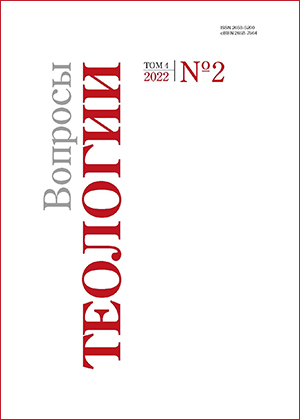Christianity and the national identity of the Nenets
DOI:
https://doi.org/10.21638/spbu28.2022.209Abstract
The article examines the main features and conditions of the formation of the national identity of the Nenets (the most numerous ethnic group among the indigenous peoples living in the territory of the Yamalo-Nenets Autonomous District) in the context of missionary activity as cross-cultural communication. The mission affects not only beliefs, but also culture, which includes life, nutrition, the form of social relations, symbols and so on. The more deeply the mission actor understands the culture of the addressee, the more effective the missionary service will be. For many Nenets, the adoption of baptism means the rejection of the culture of their people, which will inevitably entail a change of identity, since historically missionaries of different faiths insisted on the destruction of pagan artifacts and a complete break with the previous way of life. Attempts are being made among Orthodox and Protestant missionaries of Yamal to combine traditional culture and the Gospel in order to preserve national identity and increase the effectiveness of preaching. The Protestant campaign differs from the traditional Orthodox mission by desacralization of traditional beliefs through their rational interpretation. Thus, the mission does not lead to the legalization of traditional forms, but to a rethinking of the existing systems of relations. This method is promising, as it allows to rededicate culture in the spirit of the Christian tradition.
Keywords:
mission, national identity, identity crisis, missionary service, indigenous small peoples, Nenets, Samoyeds
Downloads
References
References
Downloads
Published
Issue
Section
License
Articles of "Issues of Theology" are open access distributed under the terms of the License Agreement with Saint Petersburg State University, which permits to the authors unrestricted distribution and self-archiving free of charge.




